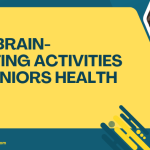Table of Contents
- Introduction
- 1. Adopt a Brain-Healthy Diet
- 2. Stay Physically Active
- 3. Prioritize Mental Health
- 4. Get Quality Sleep
- 5. Avoid Harmful Substances
- Conclusion
- FAQs
Introduction
Neurological disorders, such as Alzheimer’s disease, Parkinson’s disease, and multiple sclerosis, can significantly impact quality of life. With advancements in research, especially in 2024 and 2025, it is becoming increasingly evident that certain lifestyle changes can help mitigate the risk of developing these conditions. In this article, we will explore the top five lifestyle changes that can protect your brain health and enhance your overall well-being.
1. Adopt a Brain-Healthy Diet
Eating the right foods plays a crucial role in maintaining brain health. A diet rich in antioxidants, healthy fats, vitamins, and minerals can help protect the brain from oxidative stress and inflammation.
Key Components of a Brain-Healthy Diet:
- Omega-3 Fatty Acids: Found in fatty fish like salmon and walnuts, omega-3s support cognitive function. Recent studies in 2024 indicate that regular consumption of omega-3s may lower the risk of Alzheimer’s.
- Fruits and Vegetables: Berries, leafy greens, and cruciferous vegetables are high in antioxidants, which can help reduce the risk of neurodegenerative diseases.
- Whole Grains: Foods like quinoa, brown rice, and oats provide energy and support brain function.
- Nuts and Seeds: Rich in vitamin E, nuts and seeds can help protect the brain from age-related decline.
Sample Brain-Healthy Meal Plan:
| Meal | Food Options |
|---|---|
| Breakfast | Oatmeal topped with berries and walnuts |
| Lunch | Quinoa salad with spinach, chickpeas, and olive oil |
| Snack | Carrot sticks with hummus |
| Dinner | Grilled salmon with steamed broccoli and sweet potato |
For more information on dietary guidelines aimed at preventing cognitive decline, check out the Alzheimer’s Association.
2. Stay Physically Active
Regular physical activity is essential for brain health. Exercise increases blood flow to the brain, promoting the growth of new brain cells and enhancing cognitive functions.
How Much Exercise?
Aim for at least 150 minutes of moderate aerobic activity per week, along with strength training exercises on two or more days. Activities such as walking, cycling, swimming, and dancing are excellent choices.
Benefits of Exercise:
- Improves memory and cognitive function
- Reduces stress and anxiety
- Enhances mood through the release of endorphins
Consider joining a local fitness class or community group to stay motivated. For inspiration, check out the Centers for Disease Control and Prevention (CDC).
3. Prioritize Mental Health
Mental health plays a significant role in preventing neurological disorders. Chronic stress, anxiety, and depression can contribute to cognitive decline over time.
Tips for Maintaining Mental Well-Being:
- Practice Mindfulness: Techniques such as meditation and yoga can help reduce stress and improve mental clarity. Recent findings show that mindfulness practices can enhance neuroplasticity, which is crucial for brain health.
- Stay Socially Connected: Engage with friends and family regularly to build a support network that enhances emotional resilience. Social interactions have been linked to lower risks of cognitive decline.
- Seek Professional Help: If you’re struggling with mental health issues, don’t hesitate to reach out to a qualified mental health professional.
Resources:
- Visit the National Institute of Mental Health (NIMH) for information on mental health conditions and treatment options.
4. Get Quality Sleep
Sleep is essential for overall health, especially for brain function. During sleep, the brain clears out toxins that accumulate throughout the day and consolidates memories.
Tips for Better Sleep:
- Establish a Sleep Routine: Go to bed and wake up at the same time every day to regulate your body’s internal clock.
- Create a Restful Environment: Keep your bedroom dark, quiet, and cool to promote a restful sleep environment.
- Limit Screen Time: Reduce exposure to screens at least an hour before bed to improve sleep quality.
Recommended Sleep Duration:
- Adults should aim for 7-9 hours of quality sleep each night. The importance of sleep is underscored by research indicating that sleep deprivation can increase the risk of neurodegenerative diseases.
For more sleep strategies, check out the National Sleep Foundation.
5. Avoid Harmful Substances
Certain substances can have detrimental effects on brain health. Avoiding or minimizing these can significantly lower the risk of neurological disorders.
Substances to Avoid:
- Alcohol: Excessive alcohol consumption can lead to cognitive impairment and increase the risk of dementia.
- Tobacco: Smoking is linked to a higher risk of Alzheimer’s and other cognitive disorders.
- Recreational Drugs: Drugs can have serious long-term effects on brain health.
Tips for Making Healthier Choices:
- Opt for non-alcoholic beverages and consider seeking resources for quitting smoking if needed.
- Engage in healthy stress-relief activities instead of turning to substances.
For more information on the effects of substance use, visit the Substance Abuse and Mental Health Services Administration (SAMHSA).
Conclusion
Incorporating these five lifestyle changes can significantly enhance your brain health and reduce the risk of neurological disorders. By adopting a brain-healthy diet, staying physically active, prioritizing mental well-being, ensuring quality sleep, and avoiding harmful substances, you are taking proactive steps toward a healthier future. Remember, small changes can lead to significant improvements in your quality of life.
FAQs
Q: Can I reverse neurological disorders with lifestyle changes?
A: While lifestyle changes can help lower the risk and slow the progression of some disorders, they are not a guaranteed cure. It’s essential to consult with healthcare professionals for personalized advice.Q: How long does it take to see benefits from lifestyle changes?
A: Benefits can vary, but many individuals report improvements in mood, energy levels, and cognitive function within a few weeks of implementing these changes.Q: Are there specific exercises that are better for brain health?
A: Activities that combine physical exercise with mental engagement, such as dance or team sports, are particularly beneficial. Additionally, practices like tai chi and yoga enhance both physical and mental well-being.Q: Is it too late to make these changes if I’m older?
A: It’s never too late to adopt healthier lifestyle choices. Many studies show that older adults can still benefit significantly from diet, exercise, and other lifestyle changes.
For more insights and resources on brain health, visit Harvard Health for up-to-date research and articles.
By following these guidelines, you can take charge of your brain health and enjoy a fulfilling life. Remember, every small step counts! For more related insights, also check out Top 5 Essential Insights on Neuro Care You Need to Know.






